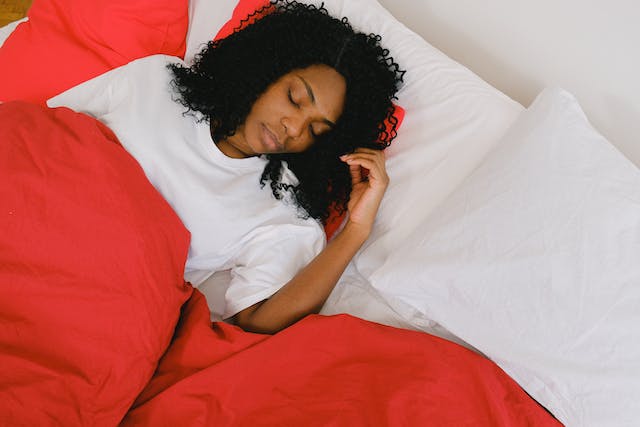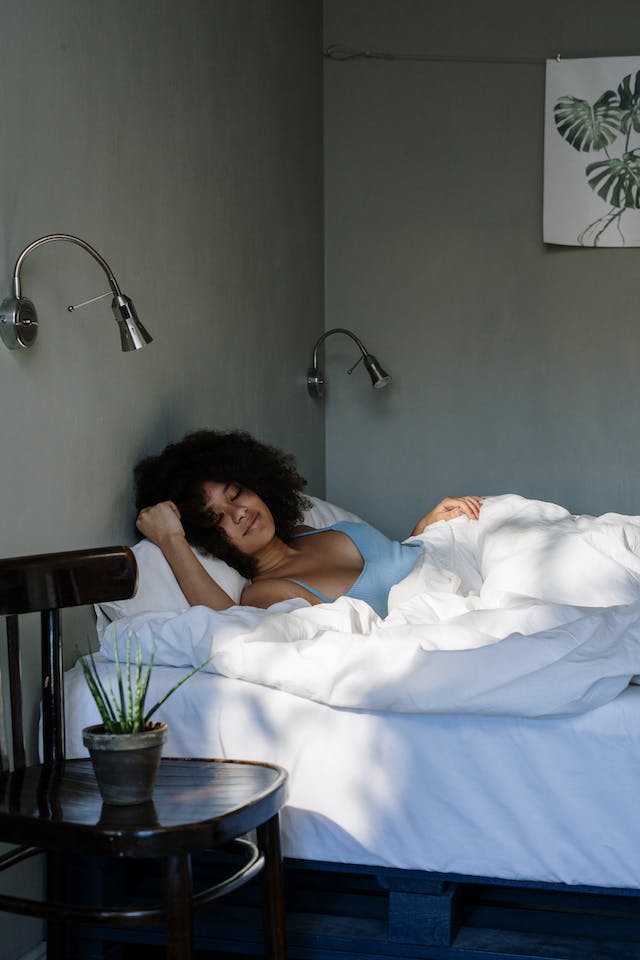
"Sleep's Silent Influence on Anxiety"
We frequently overlook the crucial balance between our waking and sleeping hours in our fast-paced environment. A frequent companion in today’s world, anxiety can have a negative impact on our lives. This blog explores the complex connection between anxiety and sleep, illuminating how getting enough sleep each night can have a substantial impact on mental health(“Sleep and Anxiety Connection”)
The Sleep-Anxiety Nexus.
Anxiety and sleep are inversely correlated, according to recent studies. Although anxiety can cause sleep disturbances, inadequate or substandard sleep can intensify the symptoms of anxiety. For anyone trying to prevent or control anxiety, understanding this dynamic interaction is essential.
Unveiling the Sleep-Deprived Mind.
Increased anxiety is frequently preceded by sleep loss. We become more irritable and emotionally reactive when we don’t get enough sleep because our brain finds it difficult to control our emotions. This weakness facilitates the growth of anxiety, transforming minor stressors into formidable obstacles.

The REM Connection.
Rapid Eye Movement (REM) sleep is one of the main components in the link between sleep and anxiety. The brain processes emotions and organizes memories at this phase. People are more prone to anxiety problems when REM sleep disruptions impair their ability to regulate their emotions.
REM Sleep's Crucial Role.
Research indicates that REM sleep disturbances are common in people with anxiety disorders. We may be able to reduce anxiety by promoting healthy sleep habits since they can lead to better REM sleep and, in turn, stronger emotional resilience.https://www.ncbi.nlm.nih.gov/pmc/articles/PMC3181635/
Breaking the Cycle.
A complex strategy is needed to break the cycle of anxiety and restless nights. Good sleep hygiene habits can help create a foundation for peaceful evenings and decreased anxiety. These practices include keeping a consistent sleep schedule and developing a calming bedtime routine.
Sleep Hygiene Practices.
Relaxation can be encouraged by creating a space that is conducive to sleep that is free from electronics and loud noises. Before going to bed, engaging in mindfulness practices like meditation or deep breathing exercises can also help relax a racing mind and prepare the way for a more rejuvenating sleep.

Seeking Professional Guidance.
It’s critical to get expert assistance if you struggle with ongoing anxiety and sleep issues. Mental health specialists can offer customized approaches to tackle anxiety and sleep problems, guaranteeing a thorough and efficient approach to general wellbeing.https://www.medicalnewstoday.com/articles/326926
The Importance of Professional Support.
Cognitive-behavioral therapy (CBT) is one type of therapeutic intervention that can help people break the cycle of anxiety and insomnia by giving them the ability to control their symptoms. On the path to better mental health, working with a healthcare professional provides individualized direction and support.
Conclusion: Embracing a Restful Future.
Recognizing and addressing the significant relationship between anxiety and sleep is an essential first step in the pursuit of mental health. People can empower themselves to face life’s obstacles with resilience and create a more peaceful and anxiety-free future by making proper sleep habits a priority.https://www.sleepfoundation.org/mental-health/anxiety-and-sleep#:~:text=Anxiety%20is%20frequently%20connected%20to,involving%20insomnia%20and%20anxiety%20disorders.

